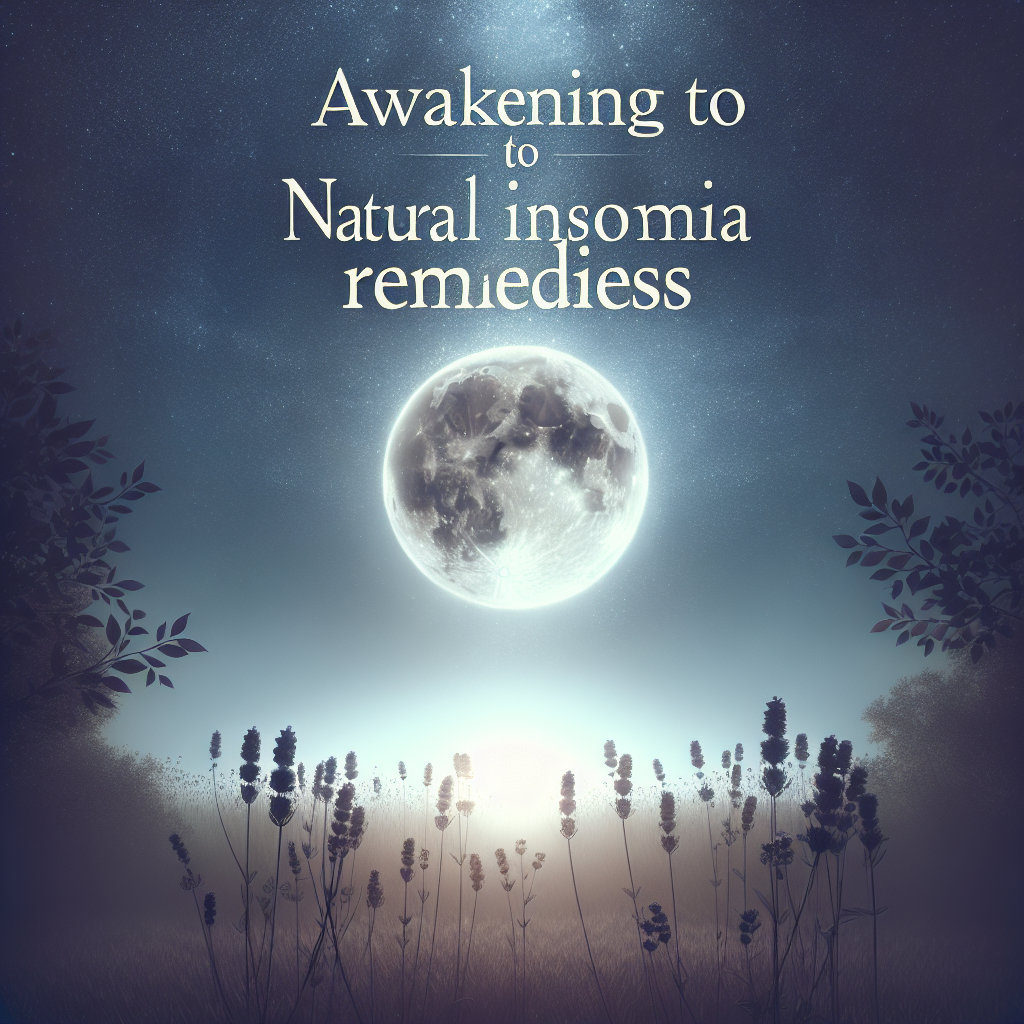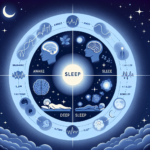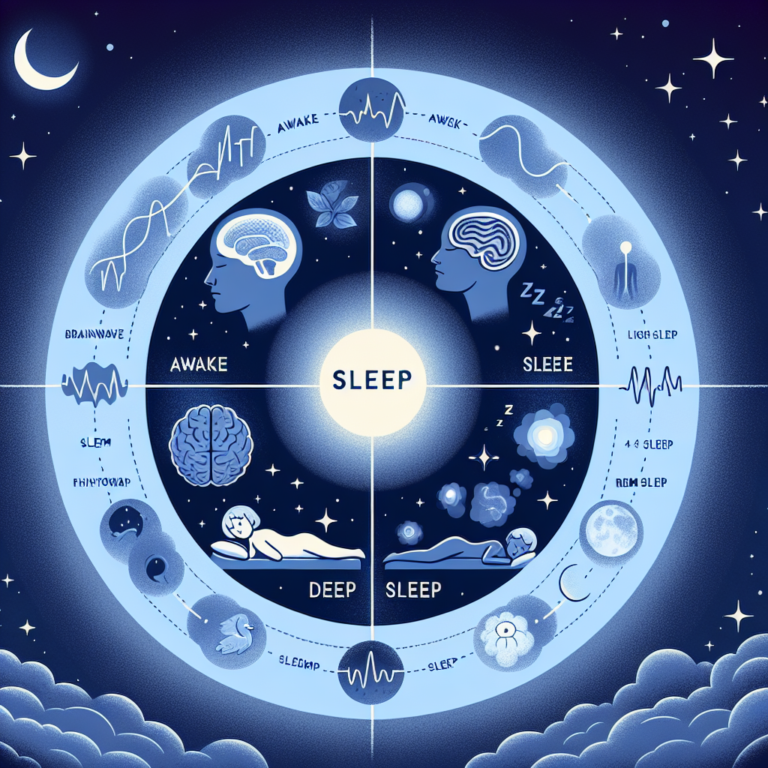
Awakening to Sleep: A Guide to Natural Insomnia Remedies for Restful Nights
Introduction
Imagine lying in bed, staring at the ceiling, while the minutes stretch into hours. The weight of the day presses down upon you, yet sleep remains elusive. Insomnia isn’t just a nuisance; it can affect your physical health, mental clarity, and overall quality of life. As we delve into Awakening to Sleep: A Guide to Natural Insomnia Remedies, we will explore effective natural remedies that can help combat insomnia and restore restful sleep. This guide aims to empower you with knowledge and actionable insights, enabling you to regain control over your sleep patterns.
Understanding Insomnia
Insomnia is more than just difficulty falling asleep; it’s a complex condition that can manifest in various forms.
Types of Insomnia
- Acute Insomnia: Short-term insomnia often triggered by stress or life changes.
- Chronic Insomnia: Persistent difficulty in sleeping that can last for months or even years.
- Comorbid Insomnia: Insomnia that arises from underlying health issues, such as anxiety or depression.
Case Study: Meet Sarah, a 34-year-old graphic designer. Following a traumatic event, Sarah experienced acute insomnia. Her struggle illustrates the impact of stress on sleep quality. By employing natural remedies, Sarah was able to restore her sleep cycle within weeks.
Why Natural Remedies?
Many individuals find themselves hesitant to turn to pharmaceutical solutions due to potential side effects or dependency concerns. This is where Awakening to Sleep: A Guide to Natural Insomnia Remedies will shine.
Natural remedies can offer safe, effective alternatives that address the root causes of insomnia without the risk of addiction. Let’s explore some proven strategies!
Natural Remedies for Insomnia
1. Herbal Solutions
Valerian Root: This herb has been used for centuries as a natural sedative. A study published in American Journal of Medicine found participants who took valerian root reported improved sleep quality within two weeks.
Chamomile: Known for its calming properties, chamomile tea before bed can promote relaxation and improve sleep onset.
2. Mindfulness and Meditation
Practicing mindfulness and meditation techniques can help reduce anxiety levels, which are often a significant contributor to insomnia.
Mindfulness Techniques
| Technique | Description |
|---|---|
| Deep Breathing | Focus on inhale and exhale cycles to calm the mind. |
| Body Scan | A technique to release tension by mentally scanning the body. |
| Guided Imagery | Visualizing peaceful, serene outcomes helps distract from stressors. |
Case Study: John, a corporate employee, used a guided meditation app for ten minutes before bed. Within a month, he experienced a significant reduction in insomnia episodes.
3. Lifestyle Adjustments
Making simple changes in your daily routine can make a significant difference.
Sleep Hygiene Tips
- Create a Sleep Schedule: Go to bed and wake up at the same time every day.
- Limit Screen Time: Reduce exposure to screens at least an hour before bed to diminish blue light exposure that impairs melatonin production.
- Control Your Sleep Environment: Make your bedroom a sanctuary—dark, cool, and quiet.
Analysis: These lifestyle adjustments are often overlooked but can be crucial in establishing a natural rhythm that fosters sound sleep.
4. Nutrition and Sleep
What you consume during the day affects your quality of sleep at night.
Foods That Promote Sleep
| Food | Benefits |
|---|---|
| Almonds | Contain magnesium, a mineral that promotes sleep. |
| Kiwi | Known to improve sleep onset and duration. |
| Tart Cherry | Contains melatonin, which regulates sleep cycles. |
Case Study: Emily, a nutritionist, incorporated tart cherry juice into her nightly routine. After a month, she reported falling asleep faster and waking up refreshed.
5. Physical Activity
Regular exercise can significantly improve sleep quality. Aim for at least 30 minutes of moderate exercise most days; however, avoid vigorous activity close to bedtime.
Analysis: Physical activity fosters better sleep by reducing anxiety and improving mood.
Overcoming Common Sleep Obstacles
1. Stress Management
Chronic stress can lead to insomnia. Techniques such as yoga, tai chi, or even journaling can help release pent-up tension.
2. Caffeine and Alcohol
Both substances can disrupt sleep patterns when consumed in excess, particularly if ingested later in the day. Consider reducing intake, especially close to bedtime.
3. Napping
Short naps may be beneficial, but longer naps can interfere with nighttime sleep. If you must nap, limit it to 20-30 minutes in the early afternoon.
Putting It All Together: A Personalized Sleep Plan
Creating a holistic, personalized sleep plan can be pivotal in tackling insomnia. Here’s how to do it:
- Identify Triggers: Keep a sleep diary to note patterns, potential triggers, and which remedies have been tried.
- Incorporate Remedies Gradually: Introduce one new remedy at a time to observe its effects.
- Stay Flexible: Be adaptable; what works may evolve over time based on individual needs.
Case Study: Mark, a 45-year-old engineer, was able to refine his sleep plan by integrating various remedies, leading to a dramatic improvement in his overall well-being.
Conclusion
In our journey through Awakening to Sleep: A Guide to Natural Insomnia Remedies, we’ve examined a range of effective, natural strategies to combat insomnia. Addressing lifestyle, nutrition, and mindfulness can dramatically improve sleep quality and eliminate the detrimental effects of insomnia. By taking action, you can reclaim restful nights and revitalized days.
Take the first step toward better sleep tonight! Implement these techniques, and remember, natural remedies may take time but can lead to lasting change.
FAQs
1. What are some quick tips to fall asleep faster?
- Stick to a schedule, limit caffeine, create a calming bedtime routine, and ensure a comfortable sleep environment.
2. Are natural remedies safe for everyone?
- While most natural remedies are safe, it’s advisable to consult with a healthcare professional, especially if pregnant or taking prescribed medications.
3. How long does it take for natural remedies to work?
- Results can vary; many users see improvements within a few weeks but may take longer for some remedies.
4. Can I use over-the-counter sleep aids along with natural remedies?
- It’s essential to consult a doctor before combining treatments to avoid adverse interactions.
5. Is napping beneficial for insomnia?
- Short naps can help, but long naps may disrupt nighttime sleep. It’s best to limit naps to 20-30 minutes and to the early afternoon.
Now that you have a detailed understanding of Awakening to Sleep: A Guide to Natural Insomnia Remedies, the power to reclaim restful slumber is in your hands. Experiment with these techniques, find what resonates, and embrace the path to rejuvenating sleep.

















